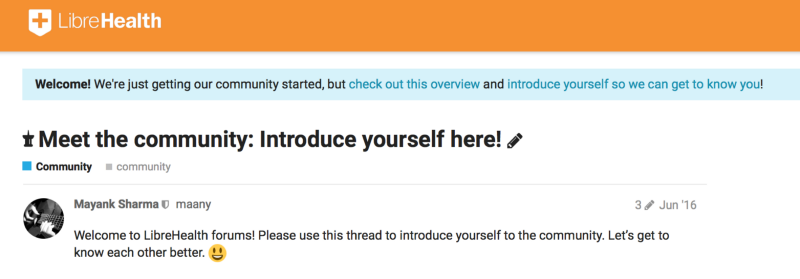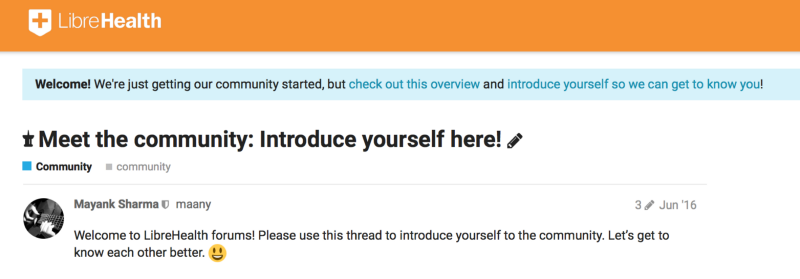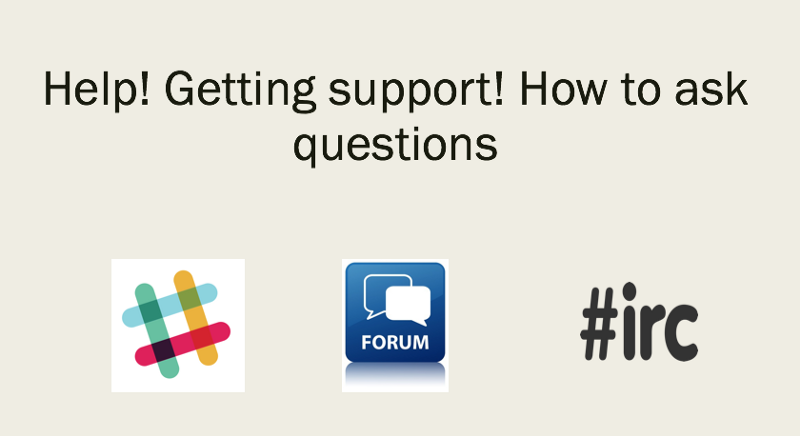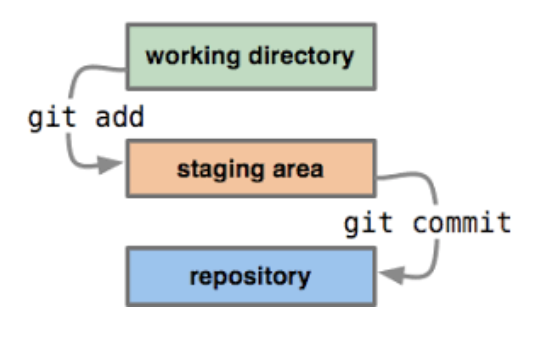Mentorship and Networking — My strategy based on open source involvement
 freeCodeCamp
freeCodeCamp
By Judy Gichoya, MD
My first year of medical school was in 2003, a time when caring for HIV/AIDS patients was difficult due to lack of antiretrovirals (ARVs). Now as every medical student knows, the excitement of getting to the clinical rotations is unparalleled… walking down the inpatient halls with a stethoscope around your neck , taking care of you ‘own’ patients are among the joys of a young medical student.
However, my dreams were crashed pretty fast — I spent more time chasing after lab results that were lost. But in typical Judy style of being at the right place at the right time, I connected with Ben Wolfe (the first developer for OpenMRS — the largest open source medical records system in the world used in over 40 countries) and the rest is history.
I could tell that Ben was wondering when the only girl in his class would drop off, but those 4 pm hands on meetings proved to be one of the most valuable investments of my time……
Fast forward — and now I have worked in health open source software for many years as a developer, implementer, and evaluator — traveling around the world and making friends whose purpose is to improve patient care in places with limited resources. Nonetheless , I am not one to command a room when I walk in — I am soft spoken, and as most Americans will be quick to remind me “Where is your accent from ?” and a woman of color.
However I am still able to connect to people doing amazing work, most of whom have let me sit on their shoulders and opened innumerable opportunities for this village girl. In summarizing how I network, I realized my strategy is the open source way — I volunteer to maintain an open source radiology imaging system at librehealth.io , and share my experience below. I hope this article helps both mentors and mentees looking to make a difference for diversity in STEM and medicine.
1. Welcome to the community
At LibreHealth, the first post we encourage our new members to write is a short blob about themselves. I check this every other day and give a thumbs up to new members or a like for a new post to send a message that someone saw their message.

How can you introduce STEM to minorities? By sharing your social capital — even with simple things like retweets and tags of people who are doing amazing work if you have a big social media presence. Remember most minorities will be shy to propose themselves for award nominations — so give them a shout out for things like the RedHat open source award or the Anita Borg awards… Don’t forget to introduce yourself to someone new and break out of your social circle — especially at conferences.
2. Building a community — How I do it
The challenge of building a radiology information system (RIS) which is is not directly used by patients but by doctors is that your consumer/customer pool is small. With a personal motto of “ people before code” , I work to build a community before focusing on the developer stuff.
For you as a mentee …
Build your network before you need it
In my open source journey this means stalking people using Google — I will start by searching “radiology” + “ Congo” and keep reading on people and organizations working in these countries — connecting with them on Linkedln and Twitter and finally introducing them to our project. I have volunteered as a mentor every year for high school students working on Google Code In and for university students working on Google Summer of Code on projects within our community.
3 months ago, I noticed a tweet introducing the black in AI workshop to be held at NIPS 2017 (which turned out to be amazing). I joined the group and here is my introduction:

I did not know who would respond — but this email resulted in making wonderful connections to ML scientists in the Bay area — and as a bonus, I obtained feedback for a future project that would have taken years to learn about. Remember, some connections will work and others will not — don’t sweat it.
3. Help!
There are many channels for getting help on an open source project including Slack channels or IRC:

How/ Where do you start networking? Online networking is easy and lower in cost, but face to face communication is king. For example, at the open source summit organized by the Linux foundation, there is a women’s lunch event that is informal, allowing people introduce themselves and the work they do. The Linux foundation is pretty generous in providing comprehensive scholarships for attendees.
Overall for all conferences, the highest value is the
Hallway track
In other words, people you meet in the corridors and stairs and exchange and inspire each other.
4. Git commit
The idea of committing code to the world to see can be pretty terrifying, so is mentorship. Recognize and embrace the vulnerability of people around you

5. Dev 1 -> Dev 2 -> Dev 3
Akin to the evolving developer stages for open source development , let your mentorship relationship grow. For example, while the first talk from a minority speaker maybe on diversity, the next natural step should be to give technical talks. Remember this evolution also means that your mentorship relationship will at one point come to an end and its okay.
6. Code of conduct
Codes of conduct define acceptable behaviors within a community. Seek an environment of safety in your mentorship journey, where you can get honest feedback about your work and where there is room to grow. Also recognize when its time to move on.
7. Social capital
I talk about this again since we geeks love to get free swag or be the volunteer of the month. Use the same principal for your mentors — give a shout out to them when you do something amazing. Reward the mentors in your daily work.
8. Version 1.0 release -> Version 2.0 release
Remember the relationship with your mentors is always changing. Seek to provide updates to both mentors and mentees — What conference have you recently attended? Did you read a new academic paper or book ? Or is there something new in your personal life? …
Have a roadmap, and be agile in tackling your milestones, evaluating what works and what doesn't work. Use version control to manage chaos (and conflict) and be inspired to be amazing !
I recently read an article from Babson talking on how to build your village as a mentee.
I love this idea of a personal board with the following membership (copied from Babson article):
- Chairperson: The person you turn to first; perhaps a spouse or family member
- Zen Master: Someone you can count on to keep you sane and calm
- Business Guru: A professional peer who knows your craft inside and out
- Sounding Board: Someone who is wired similarly to you, with a sensibility like your own
- Devil’s Advocate: A person with a keen ability to reveal opposing perspectives
- Lifelong Friend: Someone who knows your history and helps you stay true to your values
What are your tricks that have worked for you in mentorship (as a mentor or mentee) … ?
Subscribe to my newsletter
Read articles from freeCodeCamp directly inside your inbox. Subscribe to the newsletter, and don't miss out.
Written by

freeCodeCamp
freeCodeCamp
Learn to code. Build projects. Earn certifications—All for free.